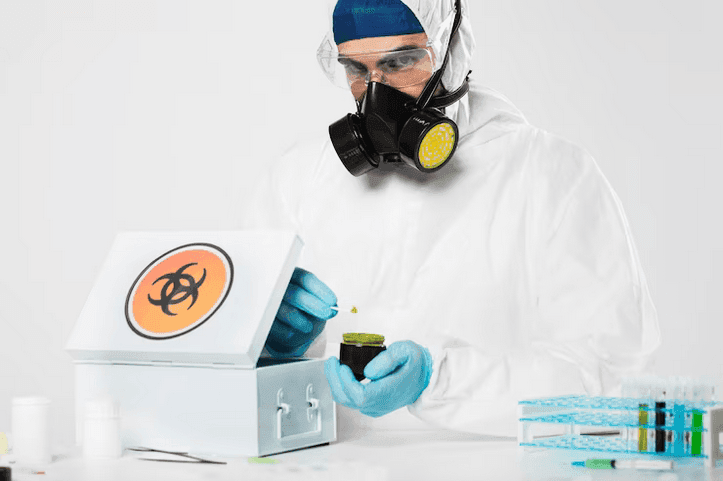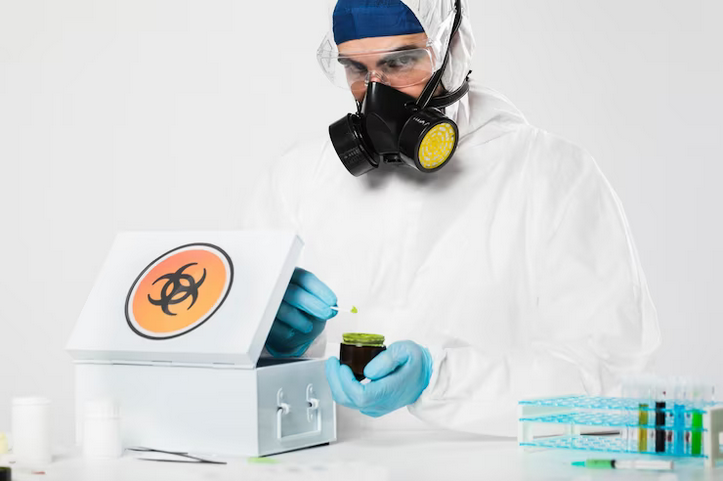
The Science of Mold testing:Weidentifyremediate Mold in Denver

Introduction:
Mold is a type of fungus that can grow in any moist environment. When present in indoor spaces, it can cause various health problems like allergies, respiratory issues, and even neurological problems. Mold growth can also damage the structural integrity of buildings, so it is essential to identify and remediate it as soon as possible. Mold Testing Denver is an effective way to identify mold in homes and commercial buildings.
In this article, we will discuss the science of mold testing, how it works, its benefits, and frequently asked questions about the process.
What is Mold Testing?
Mold testing is a process used to identify the presence of mold in indoor spaces. It involves taking air, surface, or bulk samples and sending them to a lab for analysis. The lab will then determine the type and quantity of mold present and provide recommendations for remediation.
How Does Mold Testing Work?
Mold testing involves three steps: Inspection, Sample Collection, and Analysis.
Inspection: A professional mold inspector will conduct a thorough visual inspection of the property to identify areas with visible mold growth or moisture issues that could lead to mold growth. They will also assess the air quality to determine if there are any unusual odors or signs of mold growth.
Sample Collection: The inspector will collect samples from areas with visible mold growth or suspected mold growth. There are three types of samples: air, surface, and bulk.
Air Samples: Air samples are collected using a special air pump that draws in air and traps mold spores onto a collection device. The device is then sent to a lab for analysis.
Surface Samples: Surface samples are collected by swabbing or scraping a suspected mold growth area. The sample is then sent to a lab for analysis.
Bulk Samples: Bulk samples involve taking a piece of material that contains mold, such as a piece of drywall or carpet, and sending it to a lab for analysis.
Analysis: The lab will analyze the samples to determine the type and quantity of mold present. They will provide a detailed report of their findings, including recommendations for remediation.
What are the Benefits of Mold Testing?
Mold testing provides several benefits, including:
Identifying the Type of Mold: Mold testing can determine the type of mold present in the indoor environment. This information is essential in determining the appropriate remediation process.
Determining the Extent of Mold Growth: Mold testing can determine the extent of mold growth in the indoor environment. This information is critical in determining the appropriate remediation process.
Early Detection: Mold testing can detect mold growth before it becomes a significant problem. Early detection can prevent extensive damage to the property and reduce the risk of health problems.
Peace of Mind: Mold testing provides peace of mind that the indoor environment is safe for occupants.
Frequently Asked Questions (FAQ) about Mold Testing:
How do I know if I need mold testing?
If you suspect that there is mold growth in your home or business, it is recommended to have mold testing done. Signs of mold growth include a musty odor, visible mold growth, or health problems related to mold exposure.
What are the health effects of mold exposure?
Exposure to mold can cause various health problems, including allergies, respiratory issues, headaches, and even neurological problems.
How long does mold testing take?
The length of time for mold testing depends on the size of the property and the number of samples collected. Typically, mold testing takes between 1-3 hours to complete.
How much does mold testing cost?
The cost of mold testing varies depending on the size of the property and the number of samples collected. The cost can range from $200 to $800.
What happens if mold is found during the testing?
found during the testing, the lab will provide a detailed report of their findings, including recommendations for remediation. It is essential to address mold growth as soon as possible to prevent further damage to the property and reduce the risk of health problems.
vbnet
Can I do mold testing myself?
While it is possible to purchase DIY mold testing kits, it is recommended to hire a professional mold inspector for accurate and reliable results. DIY kits may not provide accurate results, and incorrect interpretations of the results could lead to ineffective remediation efforts.
Conclusion:
Mold growth can have serious health implications and damage the structural integrity of buildings. Mold testing is a crucial step in identifying and remediating mold growth in indoor spaces. The process involves a professional mold inspector conducting a visual inspection of the property, collecting samples, and sending them to a lab for analysis. The benefits of mold testing include early detection, determining the type and extent of mold growth, and providing peace of mind for occupants. If you suspect mold growth in your home or business, it is recommended to have mold testing done by a professional mold inspector for accurate and reliable results.
Appreciate the creator